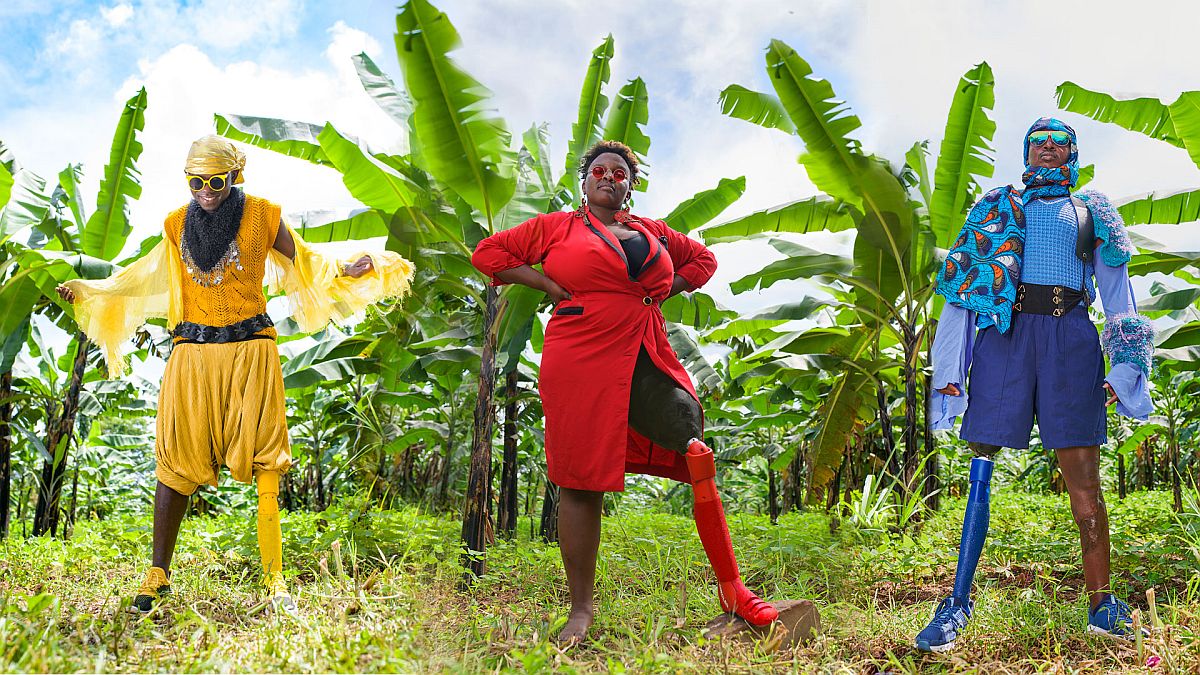

Gebert Rüf Stiftung’s First Ventures program also supports innovative social entrepreneurs, given that they are technology-driven like Simon Oschwald and Fabian Engel from Project Circleg.
It is not unusual in countries like Kenya and neighbouring countries to come across an amputee using wooden crutches. This is mainly because modern prosthetics are costly, starting from USD 1500, which a considerable proportion of the amputee population cannot afford – even with communal donations. “With affordable prosthetic limb systems, we can improve the quality of life for thousands of patients,” affirms Fabian Engel, Co-founding member of the Swiss-Kenyan Project Circleg.
With a patent-pending sole, the 7-headed team around 29- year-old Simon Oschwald and 30-year-old Fabian Engel is developing a Swiss-made prosthetic system of high functional and aesthetic quality that will cost three times less than conventional systems – starting from USD 500. Besides their easy functionality, the startup’s prosthetics are also visually attractive.
In addition to tackling the medical challenge, Project Circleg is also creating an alternative market for locally recycled plastics. The partnership with Kenyan recycling company Mr Green Africa provides Project Circleg with access to certified raw materials. These are further cleaned, broken down into small pellets, sorted according to colour and combined with glass fibres to create robust, lightweight, high-quality artificial limbs components.
The idea emerged in 2018 as a bachelor study project for industrial design at the Zurich University of the Arts. A trip to Kenya reinforced Oschwald and Engel’s ambition to pursue a career in sustainable designs, a journey that led to the formation of the award-winning social enterprise. Project Circleg has collected prizes in competitions like the Cybathlon and attracted support in the form of coaching programs in Switzerland, including the University of Zurich’s Innovators Camp, Venturelab and Innosuisse Initial Coaching. Financial aid, amounting to CHF 1 million so far, mainly stems from foundations such as IKEA Foundation, Pro Helvetia, SNF Bridge funding, Dornacher Stiftung, and Foundation Pro Victims. A crucial contribution, boosting the technological development of Project Circleg, was provided by Gebert Rüf Stiftung through its First Ventures program.
From two to eight employees, thanks to First Ventures
Oschwald and Engel impressed the First Ventures selection committee and jury with their solution’s impact, innovativeness, and financial viability. In 2019, Project Circleg became the first social enterprise with a target market outside Switzerland following admission into the program. “This was a substantial support for the development journey of Project Circleg,” acknowledged Engel. During the 2.5 years, Project Circleg benefited from the support of coaches and received a CHF 150’000 grant, which was used to cater for salaries. The two man-team quickly expanded with six additional employees covering business development, engineering, communication and marketing, and design.
Drawing closer to market launch
The team plans to make 50 units for its ‘Series Zero’ batch ready for local testing throughout 2022, as it prepares for industrialisation and market launch with Hospitals and Non-profit organisations in 2023. “We have partners in Kenya, Uganda and Tanzania for our pilot tests, and we are in discussion with 30 hospitals as potential customers”, disclosed Engel.
Discussions with five production facilities in East Africa are currently underway, and in Switzerland, the team will be collaborating with testing facilities for quality checks. “These activities will later be done in Kenya as well,” said Engel.
In the future, Project Circleg plans to establish mobile local hubs across East Africa to distribute its prosthetics in rural areas and create more jobs for the locals and amputees. “We have observed that many amputees are discriminated against and stigmatised in society, and many even lose their jobs. We have already hired one person to help us establish the hub in Kenya,” said Engel. A further CHF 2 million is also required to realise its further ambitions.
About the First Ventures Program
The First Ventures supports students and graduates of Universities of Applied Sciences eager to found their own startup. The program provides aspiring entrepreneurs with up to CHF 150’000 and the necessary expertise to transform their ideas into a business. Besides technology-driven startups, First Ventures also supports social enterprises with a viable and feasible business model.























































Please login or sign up to comment.
Commenting guidelines